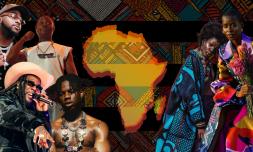The ban has already been lifted after drawing widespread public criticism.
Last week, Serigne Fall Guèye, director of the Grand Théâtre de Dakar, introduced a swift and surprising ban on wigs, weaves, hair extensions and skin-lightening products. The move was officially framed as part of a cultural revival – a means of returning to ‘pan-African values’ and reasserting a sense of African pride whilst preserving the theatre’s cultural heritage.
But the immediate public backlash has raised serious questions about what happens when legislation infringes on bodily autonomy. Was the ban an innocuous celebration of African identity, or just another vehicle to impose control over Black women’s bodies?
The Grand Théâtre sits at the symbolic heart of Senegal’s cultural life as one of the nation’s most iconic arts venues. But its leadership has been complicated by Serigne fall Guèye’s own political background. Before being appointed to the theatre in 2024, Guèye was a prominent figure in Pasef – the ruling party known for its anti-colonial and pan-Africanist rhetoric.
His decision to ban wigs and skin-lightening products didn’t sit well with feminist groups and civil society leaders, who said the memo reflected broader concerns about gender inequality in Senegal – particularly given the low number of women in President Bassirou Diomaye Faye’s administration, where 21 out of 25 politicians are men.
The pushback forced Guèye to rescind the order just 24 hours later, stating that he had ‘taken note of the concerns raised’ by his decision and was reversing it ‘under instruction from his supervisory authority’.
In his original statement, the ban was initially outlined as strict and instantaneous. ‘I am placing particular emphasis on the strict enforcement of this decision,’ Guèye said.
‘The measure aims to preserve the image of the institution, which must promote Pan-African values.’
But the negative response on social media highlighted that the ban did not extend to other ‘non-African’ items used by men, like Western suits or neckties.
Guèye’s statement was subsequently denounced as an ‘abuse of power’ intent to police women’s bodies, with Alioune Tine, founder of think tank AfrikaJom, addressing the decision as an interference ‘in the private lives and freedom of women.’
Within 24 hours, Guèye reversed his stance, acknowledging that the policy overstepped his bounds and stating it was a mistake. It was a rare public concession in the Senegalese cultural sphere, but one that highlighted how swiftly state-driven cultural directives can clash with Black women’s autonomy and lived experiences.
The ban, though brief, underlined a lingering tendency among male authorities to regulate women’s bodies – viewed through the lens of cultural morality.
But its proponents argue it was part of a broader revivalist turn in Senegal – one that seeks authenticity and rejects derivative beauty styles in favour of pre-colonial African elegance.
Yet a meaningful cultural policy would have featured dialogues with women artists, workshops with style curators, or financial incentives to méré African craft in hair and beauty. But these were absent. Instead, authority was asserted solely through restriction.
Wigs, extensions, and skin‑lightening products carry deep social, economic, and personal connotations for many Black women. Hair and skin practices are often expressions of creativity, empowerment, resilience, and identity.
By targeting these, the Grand Théâtre hierarchy disregarded the personal agency and labor of women, and this failure to value their choices amounts to a different kind of heritage violence.





















